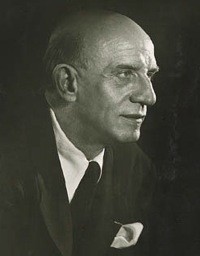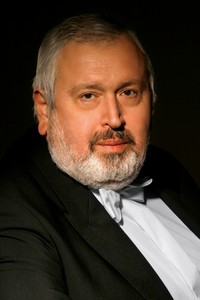
Dimitri Mitropoulos (Mitropoulos, Dimitri) |
Mitropoulos, Dimitri

Mitropoulos was the first outstanding artist that modern Greece gave to the world. He was born in Athens, the son of a leather merchant. His parents intended him first to be a priest, then they tried to identify him as a sailor. But Dimitri loved music since childhood and managed to convince everyone that it was his future in it. By the age of fourteen, he already knew classical operas by heart, played the piano quite well – and, despite his youth, he was accepted into the Athens Conservatory. Mitropoulos studied here in piano and composition, wrote music. Among his compositions was the opera “Beatrice” to the text of Maeterlinck, which the conservatory authorities decided to put on by students. C. Saint-Saens attended this performance. Impressed by the bright talent of the author, who conducted his composition, he wrote an article about him in one of the Parisian newspapers and helped him get the opportunity to improve at the conservatories in Brussels (with P. Gilson) and Berlin (with F. Busoni).
After completing his education, Mitropoulos worked as an assistant conductor at the Berlin State Opera from 1921-1925. He was so carried away by conducting that he soon almost abandoned composition and piano. In 1924, the young artist became the director of the Athens Symphony Orchestra and quickly began to gain fame. He visits France, Germany, England, Italy and other countries, tours in the USSR, where his art is also highly appreciated. In those years, the Greek artist performed Prokofiev’s Third Concerto with special brilliance, simultaneously playing the piano and directing the orchestra.
In 1936, at the invitation of S. Koussevitzky, Mitropoulos toured the United States for the first time. And three years later, shortly before the start of the war, he finally moved to America and quickly became one of the most beloved and popular conductors in the United States. Boston, Cleveland, Minneapolis were the stages of his life and career. Beginning in 1949, he led (at first with Stokowski) one of the best American bands, the New York Philharmonic Orchestra. Already being ill, he left this post in 1958, but until his last days he continued to conduct performances at the Metropolitan Opera and toured extensively in America and Europe.
Years of work in the USA became a period of prosperity for Mitropoulos. He was known as an excellent interpreter of the classics, an ardent propagandist of modern music. Mitropoulos was the first to introduce many works by European composers to the American public; among the premieres held in New York under his direction are D. Shostakovich’s Violin Concerto (with D. Oistrakh) and S. Prokofiev’s Symphony Concerto (with M. Rostropovich).
Mitropoulos was often called the “mysterious conductor”. Indeed, his manner outwardly was extremely peculiar – he conducted without a stick, with extremely laconic, sometimes almost imperceptible to the public, movements of his arms and hands. But this did not prevent him from achieving enormous expressive power of performance, the integrity of the musical form. The American critic D. Yuen wrote: “Mitropoulos is a virtuoso among conductors. He plays with his orchestra as Horowitz plays the piano, with bravura and swiftness. Immediately it begins to seem that his technique knows no problems: the orchestra responds to his “touches” as if it were a piano. His gestures suggest multicolor. Thin, serious, like a monk, when he enters the stage, he does not immediately give out what kind of motor is contained in him. But when the music flows under his hands, he is transformed. Every part of his body moves rhythmically with the music. His hands stretch out into space, and his fingers seem to collect all the sounds of the ether. His face reflects every nuance of the music he conducts: here it is filled with pain, now it breaks into an open smile. Like any virtuoso, Mitropoulos captivates the audience not only with a sparkling demonstration of pyrotechnics, but with his whole personality. He possesses Toscanini’s magic to cause an electric current at the moment when he steps on the stage. The orchestra and the audience fall under his control, as if bewitched. Even on the radio you can feel his dynamic presence. One may not love Mitropoulos, but one cannot remain indifferent to him. And those who do not like his interpretation cannot deny that this man takes his listeners with him with his strength, his passion, his will. The fact that he is a genius is clear to everyone who has ever heard him … “.
L. Grigoriev, J. Platek





